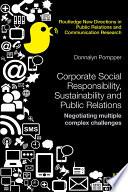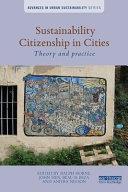This book presents the proceedings of International Conference on Knowledge Society: Technology, Sustainability and Educational Innovation (TSIE 2019). The conference, which was held at UTN in Ibarra, Ecuador, on 3–5 July 2019, allowed participants and speakers to share their research and findings on emerging and innovative global issues. The conference was organized in collaboration with a number of research groups: Group for the Scientific Research Network (e-CIER); Research Group in Educational Innovation and Technology, University of Salamanca, Spain(GITE-USAL); International Research Group for Heritage and Sustainability (GIIPS), and the Social Science Research Group (GICS). In addition, it had the endorsement of the RedCLARA, e-science, Fidal Foundation, Red CEDIA, IEEE, Microsoft, Business IT, Adobe, and Argo Systems. The term “knowledge society” can be understood as the management, understanding and co-creation of knowledge oriented toward the sustainable development and positive transformation of society. In this context and on the occasion of the XXXIII anniversary of the Universidad Técnica del Norte (UTN), the Postgraduate Institute through its Master of Technology and Educational Innovation held the I International Congress on Knowledge Society: Technology, Sustainability and Educational Innovation – TSIE 2019, which brought together educators, researchers, academics, students, managers, and professionals, from both the public and private sectors to share knowledge and technological developments. The book covers the following topics: 1. curriculum, technology and educational innovation; 2. media and education; 3. applied computing; 4. educational robotics. 5. technology, culture, heritage, and tourism development perspectives; and 6. biodiversity and sustainability.
-
ISBN 13 : 3030372219
-
ISBN 10 : 9783030372217
-
Judul : Technology, Sustainability and Educational Innovation (TSIE)
-
Pengarang :
Andrea Basantes-Andrade,
Miguel Naranjo-Toro,
Marcelo Zambrano Vizuete,
Miguel Botto-Tobar,
Miguel Naranjo-Toro,
Marcelo Zambrano Vizuete,
Miguel Botto-Tobar,
Miguel Naranjo-Toro,
Marcelo Zambrano Vizuete,
Miguel Botto-Tobar,
-
Kategori : Technology & Engineering
-
Penerbit : Springer Nature
-
Bahasa : en
-
Tahun : 2020
-
Halaman : 479
-
Google Book : https://play.google.com/store/books/details?id=5NHHDwAAQBAJ&source=gbs_api
-
Ketersediaan :
Following this idea, digital culture and in particular new communication and interaction networks impact deeply cognitive, ... these serve as a base for understanding the interactive complexity of events in the Digital Era.










